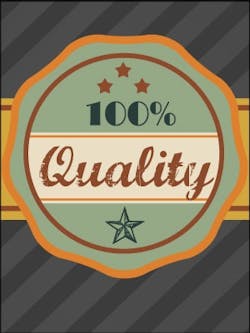Shop Certification on the Rise
Quality, safety, fair pricing and customer service are top priorities for consumers when selecting auto repair providers. And they’re increasingly searching for assurance that they will receive a top-notch, hassle-free experience.
Joe Jacobs, owner of DW Campbell Tire & Auto Service in Atlanta, says many first-time customers are “scared to death” of the repair experience and rarely trust repair providers. He wanted to find a strategy to build consumer trust that would also differentiate his facility from competing shops in the market. So Jacobs earned the Top Shop certification through RepairPal in September 2012, an organization that certifies repair shops for adherence to business standards such as work quality, equipment and tooling, and training.
“Certifications help shops stand out from the rest of the group. If you’re able to differentiate yourself with a third-party certification, that lends much more credence to your story,” Jacobs says. “Customers walk through your doors with much more confidence if they’re able to find that you’ve been verified for things like warranty, price, quality and service.”
A Growing Trend
Consumers today are increasingly concerned with the business and work quality of their repair providers, says Michael Calkins, manager of technical services for AAA National. Due to the recent economic downturn, consumers continue to be careful about how they spend their money.
“Consumers are hearing more about these independent certification programs,” Calkins says. “They’re starting to learn that there are some third-party groups beyond auto manufacturers that have aggregated repair shops—and they’re starting to see more value in those businesses.”
Art Shaw, CEO of RepairPal, says consumers are driving their vehicles longer than ever, with the average length of vehicle ownership at 11 years. That means there’s a growing need for automotive repairs and maintenance as the number of out-of-warranty vehicles increases on roadways.
But consumers are doing more proactive research prior to visiting repair facilities. Online searches for auto service and repair have increased five-fold in the last five years, Shaw says. Consumers ask friends and family for referrals, they drive by shop locations to assess appearance and customer traffic, and they scour the Internet for additional information.
“What people want is high quality at fair prices,” Shaw says. “And they want help understanding whether those needs will be met.”
Shaw says consumer traffic on RepairPal.com has increased 44 percent year after year since the organization launched, one indicator that more people are looking for shop certifications.
A Clear Difference
Chris Bjorklund, consumer advocate for Diamond Certified, an organization that certifies local service providers in the California bay area, says there are definite sales benefits for shops that get certified through an independent organization. Many certification programs have built-in marketing opportunities to promote participating shops. He says certified repairers are catching the attention of more customers—and they’re building their business as a result.
Since earning its certification, DW Campbell has grown its primary market from a five- to a 25-mile radius, and increased incoming phone calls by 40 a month.
“People are finding our shop through the RepairPal website. It has expanded our reach quite a bit,” Jacobs says, noting one customer recently drove 30 miles past more than 200 shops to get to his facility. Those improvements have resulted in a monthly revenue increase of $3,000 to $5,000.
Getting Started
There are many companies and organizations that offer certifications, such as RepairPal, AAA, Diamond Certified, Bosch, Motorist Assurance Program, NAPA, Certified Auto Repair, and AskPatty—all of which can help strengthen shop credibility.
Each program has various operational and inspection requirements for shops to get involved. Certification under AAA’s Approved Auto Repair program, for example, is a four-week approval process and requires shops to undergo annual recertification processes and ongoing customer satisfaction monitoring.
The price of certification varies widely from program to program and annual costs can range anywhere from several hundred dollars to several thousand.
Ultimately, whatever certification program you choose to pursue, Calkins says it’s a strong strategy to advertise and promote your expertise, build consumer confidence and develop a competitive advantage over other shops in the market.
“The affiliation leverages a brand that compliments and adds value to your own brand,” Calkins says. “It’s just a good business decision and a good customer relations decision.”
